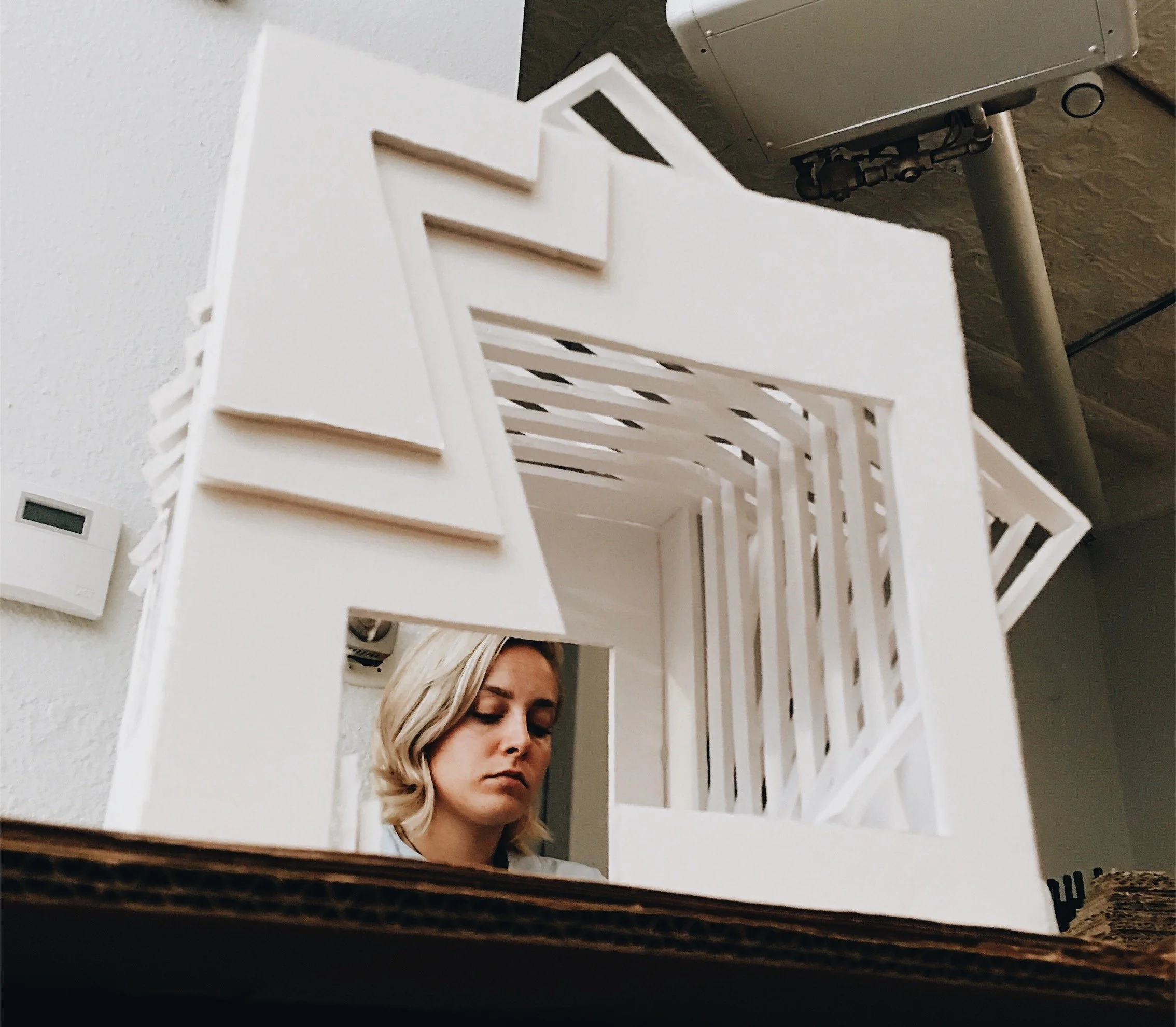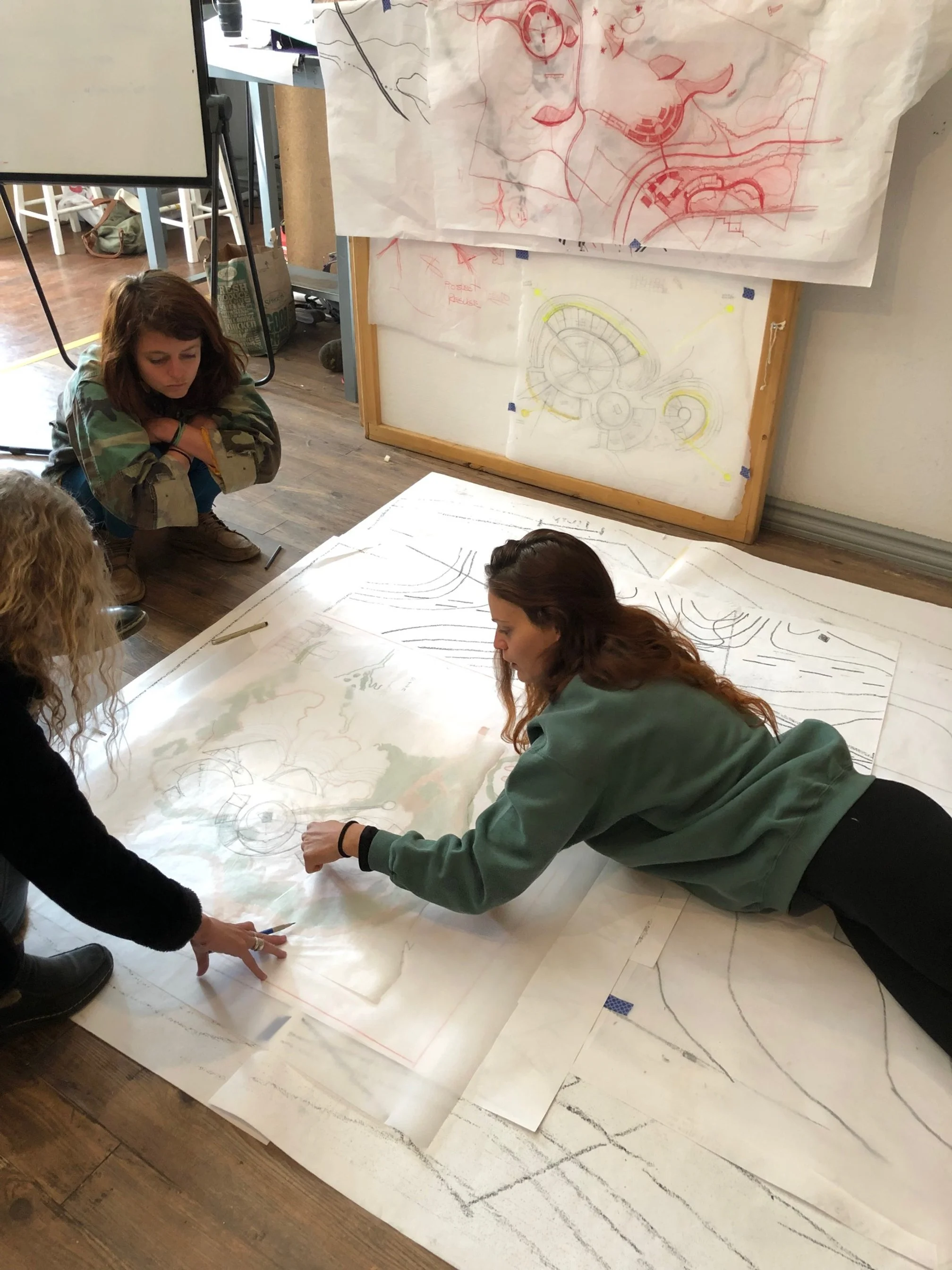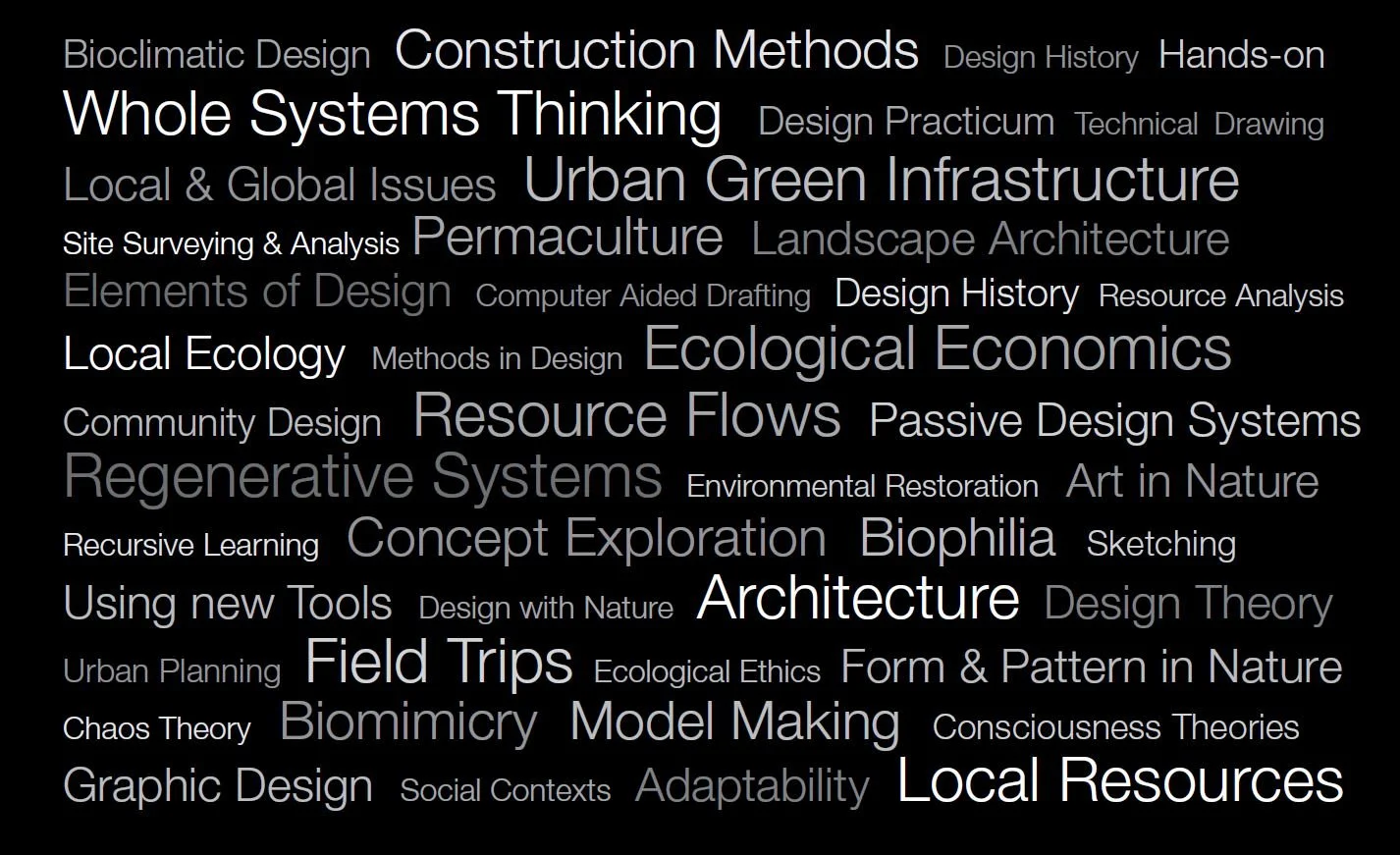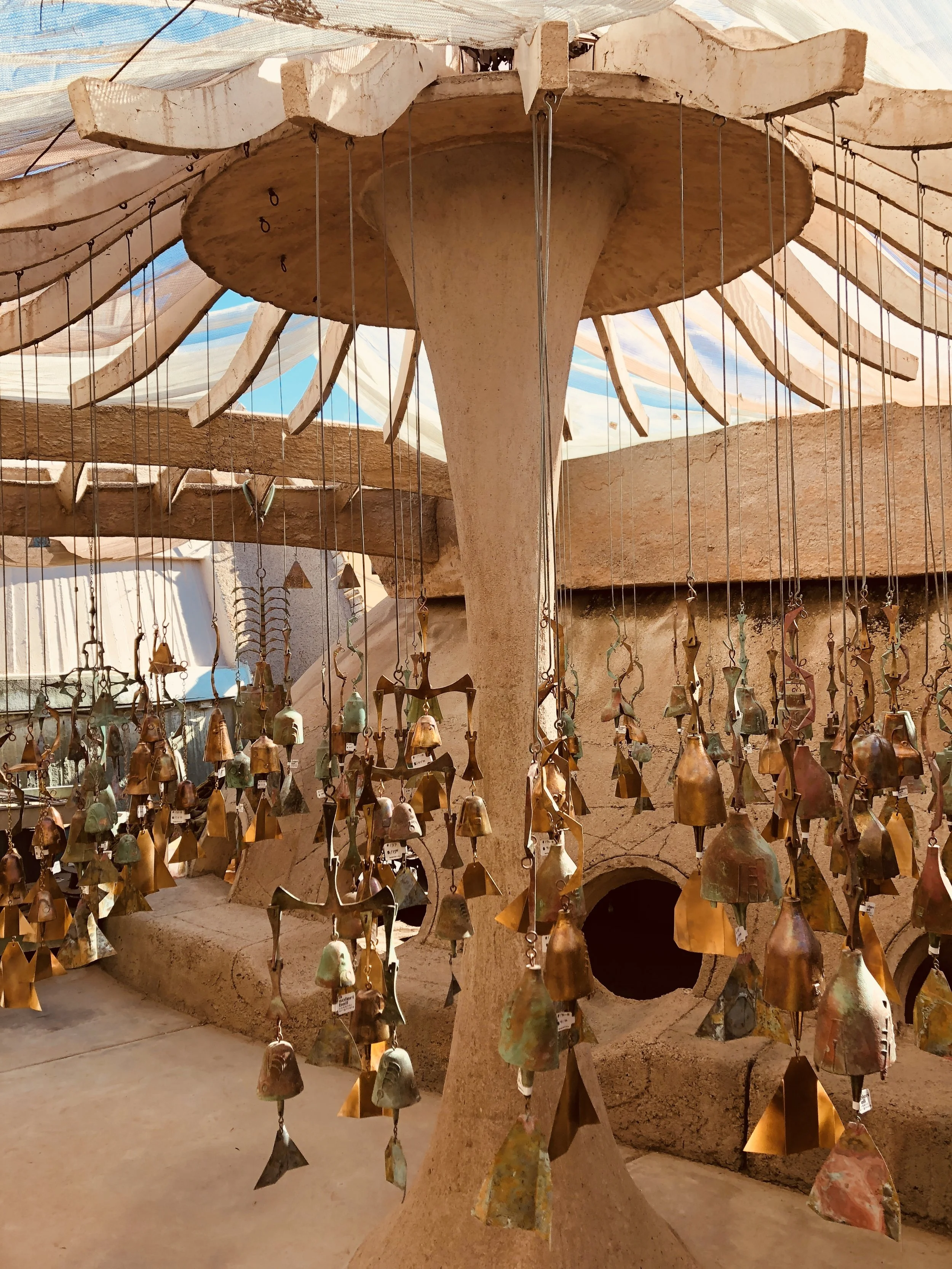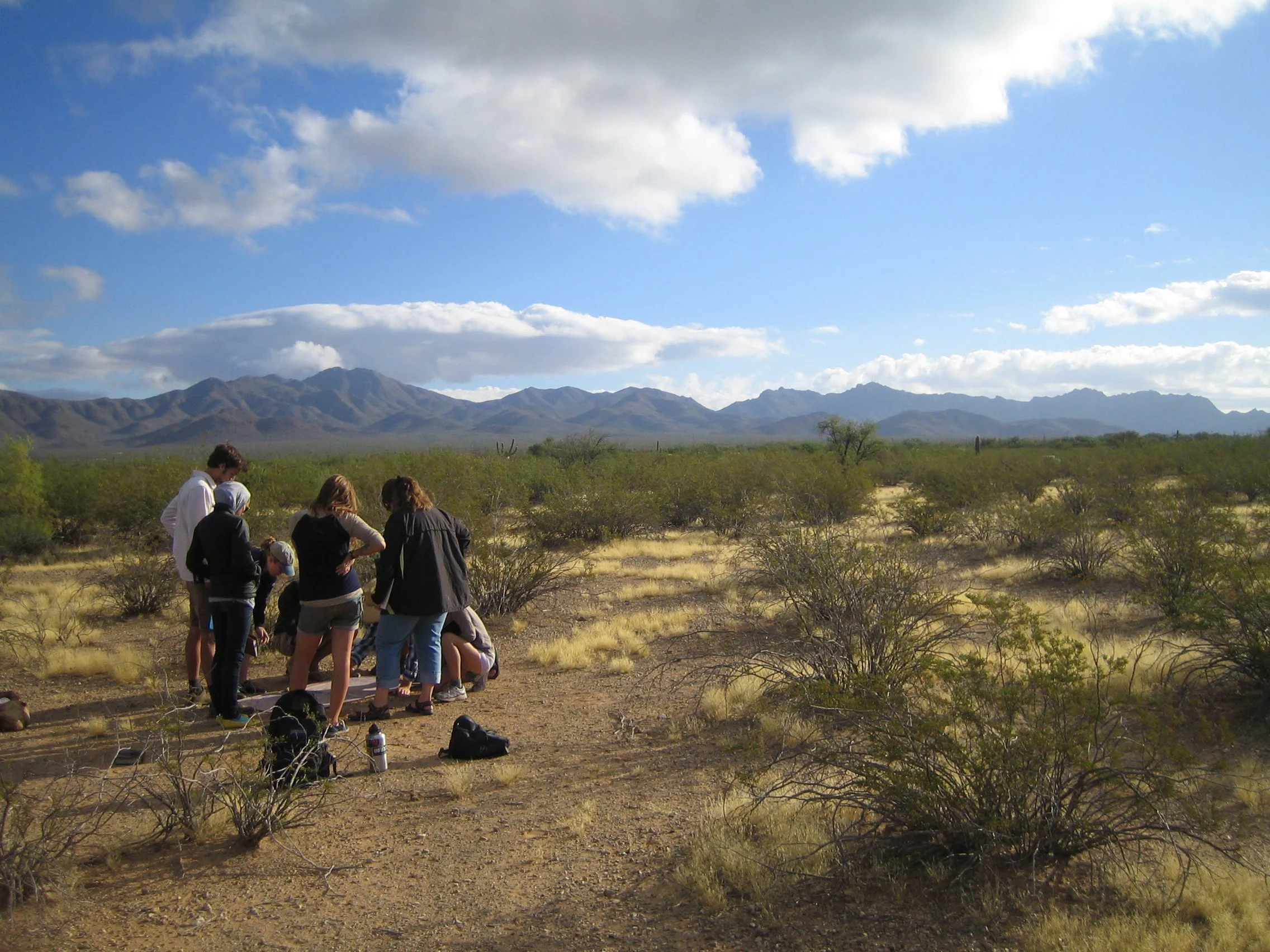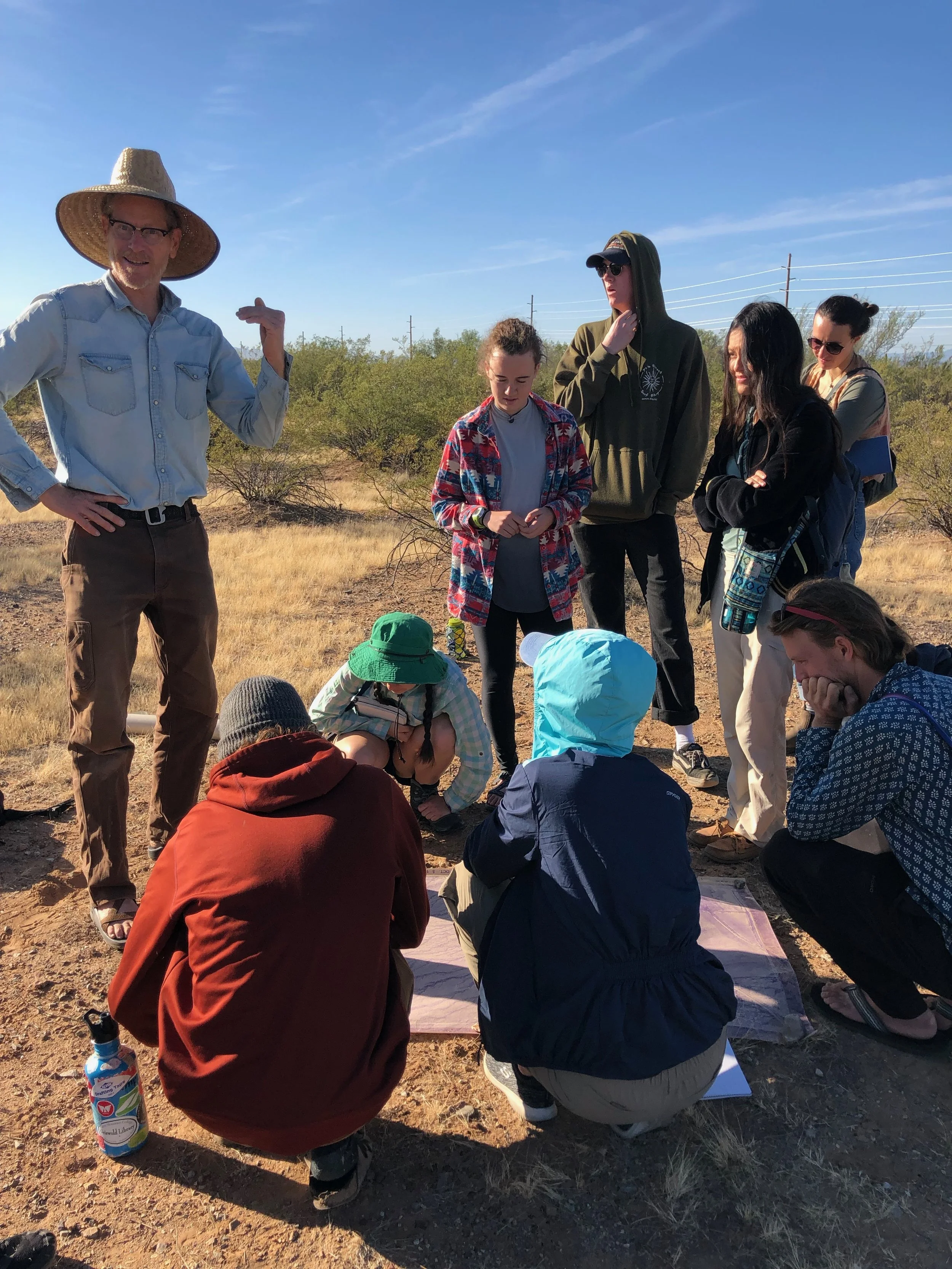“What students get in one [Ecosa] semester is a more holistic understanding of sustainability than they could presently get at any traditional design school.”
— American Institute of Architects, Committee on the Environment Report
The Ecosa Certificate in RE-Design
Regenerative
[ri-jen-er-uh-tiv, -uh-rey-tiv]
adjective, healing and creating new life
Ecological
[ek-uh-loj-i-kuhl, ee-kuh-]
adjective, using the logic of nature
Design
[dih-zahyn]
verb, to intervene in the flow of events and create a desired effect
Your Immersion in Regenerative Design
Spring and Fall Semesters
As an in-depth introduction to sustainable and ecological design, our semester program explores the many ways in which design can solve the environmental challenges of the 21st century. Architecture, planning, landscape architecture, industrial design, and other disciplines are unique problem-solving tools that have the potential to create a healthy, just and sustainable world. We use nature as a model for our curriculum, therefore it is complex, recursive and diverse. Design is a holistic, integrative, systems process and our curriculum is designed to encourage this mode of thinking.
The Ecosa Certificate in RE-Design is open to anyone regardless of background.
All students will be taught ecological design which includes lectures and discussions from industry experts, hands-on experience with natural materials, field trips, and numerous projects to integrate what has been taught. To facilitate the diverse backgrounds of our students, we offer two tracks. The RE-Design Certificate is for those without an architecture background where in addition to the amazing offerings of the program, you will also be taught the foundations of architectural drawing. For those joining us with an architecture background, we offer the Advanced RE-Design Certificate where in addition to the program you will also be taught how to incorporate natural building methods and materials into the architecture profession.
Design Education That Makes a Difference
If you are looking for an opportunity to fully delve into sustainable design (rather than just talk about it), Ecosa is the place for you. For over a decade we have advocated a radical departure from the traditional approach to teaching design. With in-depth, cross-disciplinary, hands-on programs that tackle real-world problems, the Ecosa Institute is at the cutting edge of design education.
With the specter of massive climate change threatening extraordinary impacts on our planet Earth, the role of the designer has become one of the most critical in the 21st century. We focus on the power of design both to mitigate the environmental damage our buildings, cities and products perpetrate, as well as its power to recreate a positive and intentional relationship between human beings and the natural world.
Our programs expand past the often rigid boundaries of design education to include planning, urban design, architecture, interiors, landscape architecture, graphic design, product design and more, exemplifying the essential interconnectedness of all aspects of design.
Concepts Explored
The Ecosa Certificate in RE-Design is an in-depth immersion program that provides unique ways of gaining insights into the many facets of designing with nature. Students learn how holistic systems thinking can positively transform our environment and our global community.
During your immersion semester, you will explore the following concepts (and more) with industry experts:
Biomimicry
Ecology
Regenerative Systems
Bioclimatic Design
Ecological Economics
Technical Drawing
Rainwater Harvesting
Permaculture
Biophilia
Passive Design Systems
Field Trips
Throughout the semester we take field trips to spectacular historic and contemporary sites throughout the Southwest. These trips are integrated into the learning experience to provide a basis for discussion and to place sustainable design into a broader context.
Learn from the Ecologies of Arizona
You can expect to participate in some of the following experiences:
3-Day Aboriginal Living Skills trip with instructor Cody Lundin
Sunset Crater, Wupatki, Hopi Reservation
Tucson – Arizona Sonoran Desert Museum, Mission San Xavier del Bac
Rainwater harvesting and ecological living with Brad Lancaster
Arcosanti, Cosanti and Taliesin West
Learn from the Ecologies of Colorado
You can expect to participate in some of the following experiences:
Denver Museum of Natural History
Denver Botanic Gardens
Estes Park / Rocky Mountain National Forest
NREL (National Renewable Energy Laboratory)
Mesa Verde
Course Structure
Presentations & Discussions
These presentations and discussions form the knowledge base of the certificate program. Subjects range from sketching and drawing to more conceptual ideas including regenerative design and systems thinking.
Visiting lecturers
These leaders in the field of ecological design bring cutting-edge concepts and the latest thinking in a variety of regenerative disciplines. They spend time with students both in a lecture and social setting.
Field trips
Visits to relevant sites throughout the Southwest give experiential meaning to the concepts discussed in studio and presented in lectures.
Studio Work
Students work to develop projects and create designs for real-world client projects undertaken during the semester. Ecosa staff answer questions and offer guidance during studio periods.
Research Presentations
Students are required to complete two research presentations relevant to their client-based design projects, one on construction systems and one on design history.
Client Presentations
Students must make presentations of their design work to clients, including an interim presentation and a complete final presentation.
Reading Discussions
Students are required to participate in weekly readings and related discussions, which include cutting edge debate about design and sustainability.



